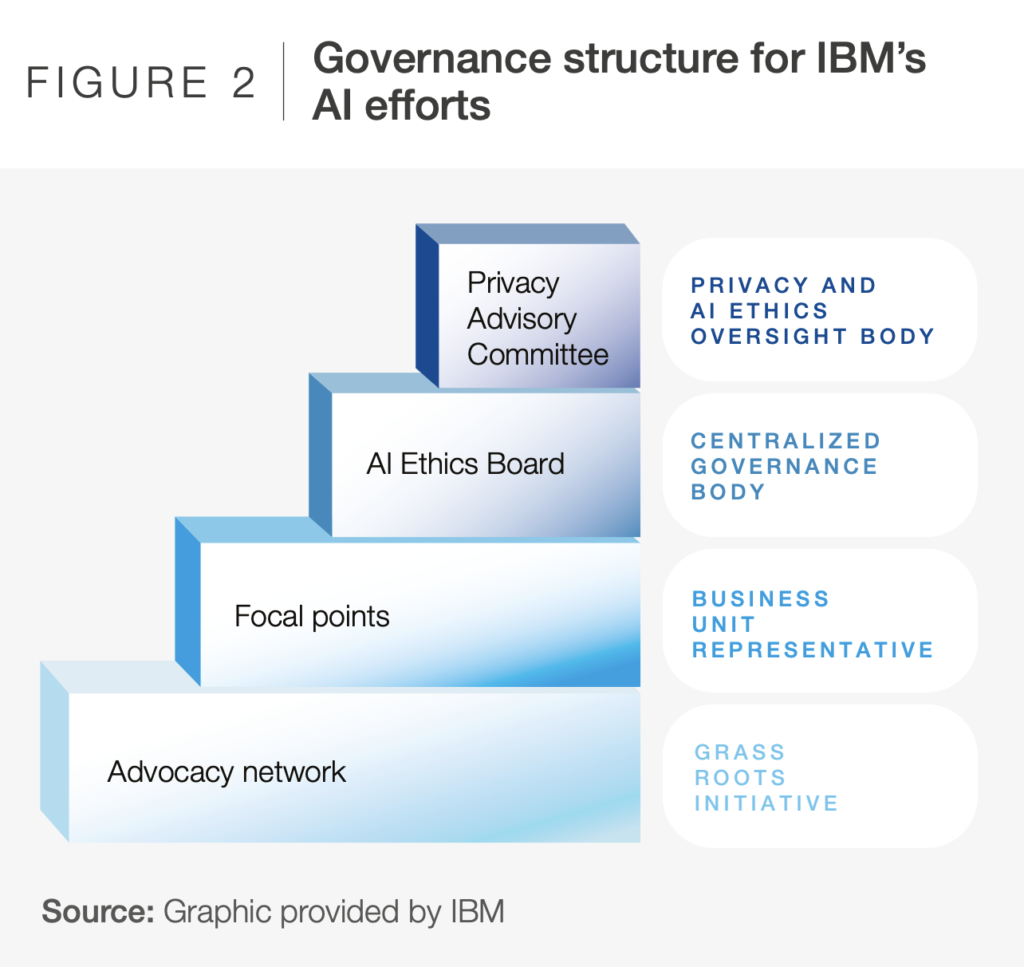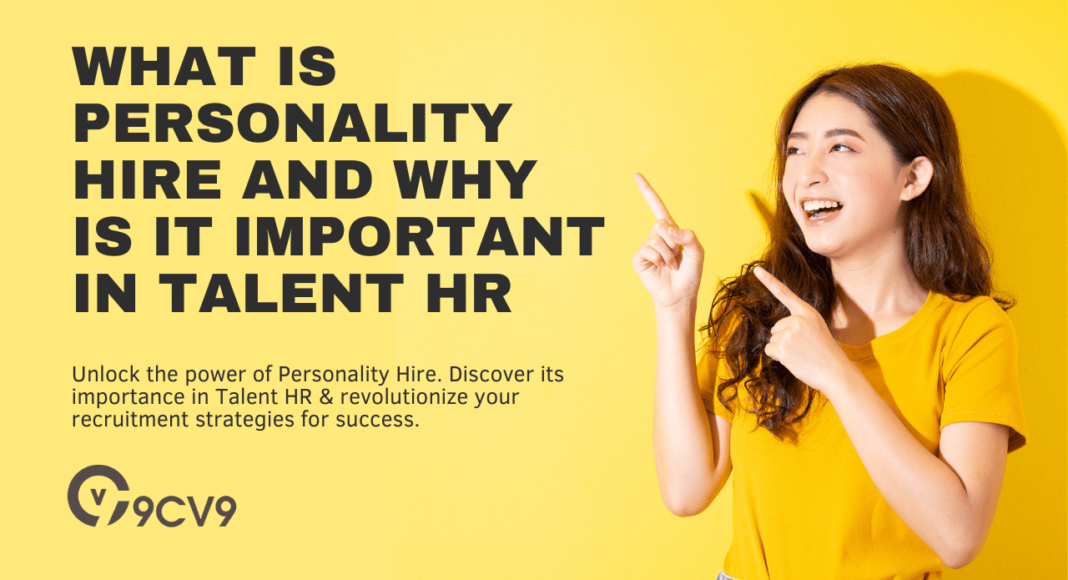Key Takeaways
- Elevate Cultural Fit: Personality Hire enhances organizational cohesion by aligning candidates’ values with company culture, fostering a harmonious workplace environment.
- Drive Performance: By leveraging personality assessments, Talent HR can identify candidates with the right behavioral traits for optimal job performance and productivity.
- Mitigate Hiring Risks: Personality Hire minimizes turnover and hiring mismatches, saving costs and ensuring long-term success in talent acquisition.
In today’s fiercely competitive job market, finding the perfect fit for your organization extends beyond just assessing skills and qualifications.
Companies are increasingly recognizing the pivotal role that personality plays in shaping not only an individual’s performance but also the overall dynamics and culture within the workplace.
This realization has propelled the adoption of a revolutionary approach known as Personality Hiring, revolutionizing the landscape of Talent HR.

But what exactly is Personality Hiring, and why is it gaining such prominence in the realm of Human Resources?
In this comprehensive guide, we delve deep into the intricacies of Personality Hire, uncovering its essence and elucidating its indispensable importance in modern talent acquisition and management strategies.
At its core, Personality Hiring goes beyond the traditional focus on qualifications and experience, aiming to decipher the unique behavioral traits, attitudes, and values that candidates bring to the table.
It encompasses a sophisticated blend of psychological insights, assessment methodologies, and data analytics to match candidates not only with job roles but also with organizational cultures and team dynamics.
So, why is Personality Hiring deemed crucial in the landscape of Talent HR?
First and foremost, it fosters the cultivation of a harmonious and synergistic workplace environment by ensuring cultural fit.
Research indicates that employees who resonate with their organization’s values and culture are more likely to exhibit higher levels of job satisfaction, engagement, and productivity.
By aligning candidates’ personalities with the ethos of the organization, Personality Hiring serves as a catalyst for nurturing a cohesive and high-performing workforce.
Moreover, Personality Hiring holds the key to unlocking the latent potential of employees, propelling them towards greater levels of success and fulfillment.
By leveraging insights gleaned from personality assessments, HR professionals can tailor development initiatives, mentorship programs, and career paths to capitalize on individuals’ strengths and address areas for growth effectively.
Additionally, in an era characterized by rapid technological advancements and evolving market dynamics, organizations must remain agile and adaptable to stay ahead of the curve.
Personality Hiring equips companies with the strategic foresight to anticipate future challenges and opportunities by identifying candidates with the right blend of resilience, creativity, and innovation mindset.
Furthermore, in a landscape fraught with talent shortages and skill mismatches, making the wrong hiring decisions can prove to be a costly and detrimental affair for organizations.
Personality Hiring serves as a powerful risk mitigation tool, minimizing the likelihood of hiring mismatches and subsequent turnover.
By employing rigorous assessment methodologies, HR professionals can make data-driven decisions that align with the long-term goals and objectives of the organization.
As we embark on this illuminative journey into the realm of Personality Hiring, it becomes evident that it transcends mere recruitment practices, evolving into a strategic imperative for organizations striving to thrive in today’s dynamic business landscape.
Join us as we unravel the nuances of Personality Hire, unlocking the keys to harnessing the full potential of talent and driving organizational success.
Before we venture further into this article, we like to share who we are and what we do.
About 9cv9
9cv9 is a business tech startup based in Singapore and Asia, with a strong presence all over the world.
With over eight years of startup and business experience, and being highly involved in connecting with thousands of companies and startups, the 9cv9 team has listed some important learning points in this overview of the guide on What is Personality Hire and Why Is It Important in Talent HR.
If you are looking for a job or an internship, click over to use the 9cv9 Job Portal to find your next top job and internship now.
What is Personality Hire and Why Is It Important in Talent HR
- The Basics of Personality Hiring
- Importance of Personality Hire in Talent HR
- The Science Behind Personality Assessments
- Implementing Personality Hire Strategies
- Overcoming Challenges in Personality Hiring
- Future Trends in Personality Hiring
1. The Basics of Personality Hiring
In understanding the fundamentals of Personality Hiring, we embark on a journey to uncover the essence of this transformative approach to talent acquisition.

From its conceptual framework to its practical applications, let’s delve deeper into the core components of Personality Hiring:
Definition and Conceptual Framework
- Personality Hiring Defined: Personality Hiring refers to the practice of assessing candidates’ behavioral traits, attitudes, and values to determine their suitability for specific job roles and organizational cultures.
- Psychological Foundations: Grounded in renowned personality theories such as the Big Five (OCEAN: Openness, Conscientiousness, Extraversion, Agreeableness, Neuroticism) and Myers-Briggs Type Indicator (MBTI), Personality Hiring leverages psychological insights to gauge individuals’ personality profiles.
- Role of Personality Assessments: Personality assessments, ranging from self-report questionnaires to situational judgment tests, serve as the cornerstone of Personality Hiring, offering quantifiable insights into candidates’ behavioral tendencies.
Evolution of Personality Assessments in Recruitment
- Historical Context: Personality assessments have a rich history dating back to the early 20th century, with pioneers such as Carl Jung and Raymond Cattell laying the groundwork for contemporary approaches.
- Technological Advancements: With the advent of digital platforms and AI-driven algorithms, personality assessments have undergone a paradigm shift, offering greater precision, scalability, and accessibility to organizations worldwide.
- Integration with Recruitment Processes: Personality assessments have become integral components of modern recruitment processes, supplementing traditional interviews and CV screenings to provide a holistic understanding of candidates’ suitability.
Key Components of Personality Hire Methodology
- Identification of Relevant Traits: Personality Hiring begins with identifying the key behavioral traits and competencies essential for success in a given role and organizational context.
- Selection of Assessment Tools: HR professionals select appropriate assessment tools tailored to assess specific personality dimensions, such as emotional intelligence, resilience, and leadership potential.
- Interpretation of Assessment Results: Trained professionals interpret assessment results, drawing insights regarding candidates’ personality profiles, strengths, development areas, and compatibility with organizational values.
By understanding the basics of Personality Hiring and its practical applications, organizations can harness the power of personality assessments to make informed hiring decisions and cultivate a workforce aligned with their strategic objectives and cultural ethos.
2. Importance of Personality Hire in Talent HR
In the dynamic landscape of Talent HR, Personality Hiring emerges as a strategic imperative, reshaping traditional recruitment paradigms and driving organizational success.
Let’s explore the multifaceted significance of Personality Hire and its profound impact on talent acquisition and management:
Enhancing Cultural Fit within Organizations
- Cultural Cohesion: Personality Hiring facilitates the alignment of candidates’ values, attitudes, and behavioral tendencies with the organizational culture, fostering a sense of cohesion and belonging among employees.
- Reduced Turnover: By selecting candidates who resonate with the organizational culture, companies mitigate the risk of turnover attributed to cultural misalignment, thereby enhancing employee retention rates.
- Example: Southwest Airlines: Southwest Airlines prioritizes cultural fit in its hiring processes, seeking individuals who embody the company’s “Warrior Spirit,” “Servant’s Heart,” and “Fun-LUVing Attitude.” This emphasis on cultural alignment has contributed to Southwest’s reputation for exceptional customer service and employee satisfaction.

Improving Employee Engagement and Retention Rates
- Alignment with Job Roles: Personality assessments enable HR professionals to match candidates’ personality profiles with the requirements of specific job roles, enhancing job satisfaction and engagement levels.
- Personalized Development Plans: By understanding employees’ strengths and development areas, organizations can tailor personalized development plans, enhancing retention and career progression opportunities.
- Example: Deloitte’s Leadership Development Program: Deloitte’s Leadership Development Program utilizes personality assessments to identify high-potential employees and customize leadership development initiatives based on individual strengths and growth opportunities.

Driving Performance and Productivity
- Optimized Team Dynamics: Personality assessments aid in assembling teams with complementary skill sets and personality profiles, fostering collaboration, innovation, and productivity.
- Enhanced Decision-Making: HR professionals leverage personality insights to identify candidates with strong decision-making abilities, adaptability, and resilience, crucial for navigating complex business challenges.
- Example: Pixar’s Collaborative Culture: Pixar, the renowned animation studio, places a premium on collaboration and creativity. By assembling diverse teams with complementary personalities and skill sets, Pixar fosters an environment conducive to innovation, as evidenced by its string of blockbuster films.
Mitigating Risks Associated with Hiring Mistakes
- Cost Reduction: Personality Hiring minimizes the likelihood of hiring mismatches, thereby reducing recruitment costs associated with turnover, training, and onboarding.
- Enhanced Predictive Validity: Personality assessments offer predictive validity in forecasting candidates’ job performance, enabling organizations to make informed hiring decisions aligned with long-term strategic objectives.
- Example: IBM’s Use of Predictive Analytics: IBM utilizes predictive analytics and personality assessments to identify top-performing candidates and predict their likelihood of success in specific job roles. This data-driven approach has optimized IBM’s recruitment processes, resulting in higher-quality hires and improved business outcomes.
By recognizing the importance of Personality Hire in Talent HR and integrating it into recruitment and retention strategies, organizations can unlock the full potential of their workforce, driving sustainable growth, innovation, and competitive advantage in today’s dynamic business landscape.
3. The Science Behind Personality Assessments
Understanding the science behind personality assessments is essential for leveraging their potential in talent acquisition and management.
Delving into the theoretical foundations, assessment tools, and ethical considerations provides valuable insights into this pivotal aspect of Personality Hiring:
Theoretical Foundations: Personality Theories and Models
- Big Five Personality Model: The Big Five, also known as OCEAN (Openness, Conscientiousness, Extraversion, Agreeableness, Neuroticism), serves as a widely accepted framework for understanding personality traits. Each trait represents a continuum, offering nuanced insights into individuals’ behavioral tendencies.
- Myers-Briggs Type Indicator (MBTI): Based on Carl Jung’s theory of psychological types, the MBTI classifies individuals into 16 personality types, each characterized by preferences in areas such as extraversion/introversion, sensing/intuition, thinking/feeling, and judging/perceiving.
- Trait Theory vs. Type Theory: While trait theory emphasizes the measurement of specific personality traits, type theory focuses on categorizing individuals into distinct personality types. Both approaches offer valuable perspectives on personality assessment, catering to diverse organizational needs.
Assessment Tools and Techniques
- Self-Report Questionnaires: Self-report questionnaires, such as the NEO Personality Inventory and the Hogan Personality Inventory, rely on individuals’ responses to assess their personality traits. These assessments provide valuable insights into candidates’ self-perceptions and behavioral tendencies.
- Situational Judgment Tests (SJTs): SJTs present candidates with hypothetical scenarios and require them to choose the most appropriate course of action. By evaluating candidates’ responses to real-life situations, SJTs offer predictive validity in assessing their decision-making skills and interpersonal effectiveness.
- Projective Techniques: Projective techniques, such as the Thematic Apperception Test (TAT) and the Rorschach Inkblot Test, involve presenting individuals with ambiguous stimuli and analyzing their responses to uncover underlying personality traits. While less commonly used in organizational settings, these techniques offer valuable insights into individuals’ unconscious motivations and perceptions.
Ethical Considerations in Personality Assessment
- Validity and Reliability: Ensuring the validity and reliability of personality assessments is paramount to their effectiveness and fairness. HR professionals must select assessments that have undergone rigorous psychometric validation processes to minimize bias and inaccuracies.
- Transparency and Informed Consent: Candidates should be provided with clear information about the purpose and implications of personality assessments and given the opportunity to consent or opt out. Transparent communication fosters trust and fairness in the assessment process.
- Protection of Privacy and Confidentiality: Organizations must adhere to strict data privacy regulations and ensure that candidates’ personal information is handled confidentially and securely. Respecting candidates’ privacy rights is essential for maintaining ethical standards in personality assessment.
By understanding the science behind personality assessments and adhering to ethical principles in their implementation, organizations can leverage these powerful tools to make informed hiring decisions and build high-performing teams aligned with their strategic objectives.
4. Implementing Personality Hire Strategies
Implementing Personality Hire strategies effectively requires careful planning, integration of assessment methodologies, and alignment with organizational objectives.
Let’s explore the key considerations and best practices for incorporating personality assessments into talent acquisition processes:
Integrating Personality Assessments into Recruitment Processes
- Identify Appropriate Assessment Tools: Select personality assessments that align with the specific traits and competencies sought for each role within the organization.
- Define Assessment Criteria: Clearly define the personality traits and behavioral competencies that are critical for success in each job role, ensuring alignment with organizational values and culture.
- Incorporate Assessments at Key Stages: Integrate personality assessments at various stages of the recruitment process, such as pre-screening, interviews, and final selection, to gather comprehensive insights into candidates’ suitability.
Training HR Personnel on Effective Implementation
- Educate HR Professionals: Provide comprehensive training to HR personnel on the administration, interpretation, and ethical considerations of personality assessments.
- Ensure Consistency and Standardization: Establish standardized procedures for administering and scoring personality assessments to ensure reliability and fairness across all candidates.
- Continuous Learning and Development: Encourage ongoing learning and development opportunities for HR professionals to stay abreast of emerging trends and best practices in personality assessment methodologies.
Leveraging Technology for Streamlined Assessment Processes
- Utilize Assessment Platforms: Leverage advanced assessment platforms and software tools to streamline the administration and analysis of personality assessments.
- Automation and Integration: Integrate personality assessment data with existing HR systems and workflows to facilitate data-driven decision-making and improve efficiency.
- Personalized Candidate Feedback: Leverage technology to provide candidates with personalized feedback based on their assessment results, enhancing the candidate experience and promoting transparency.
By implementing personality hire strategies that emphasize integration, training, and technological innovation, organizations can unlock the full potential of personality assessments in talent acquisition and management, driving business success and fostering a culture of excellence.
5. Overcoming Challenges in Personality Hiring
While Personality Hiring offers numerous benefits in talent acquisition, organizations may encounter various challenges in its implementation.
By understanding and addressing these challenges proactively, HR professionals can optimize the effectiveness of personality assessments and maximize their impact on organizational success:
Addressing Bias and Fairness Concerns
- Bias in Assessment Tools: Recognize and mitigate biases inherent in personality assessment tools, such as cultural or gender biases.
- Diverse Representation: Ensure that assessment tools and processes account for diverse backgrounds and experiences to promote fairness and inclusivity.
- Regular Evaluation: Continuously evaluate and refine assessment methodologies to minimize bias and ensure equitable outcomes for all candidates.
Ensuring Validity and Reliability of Assessments
- Psychometric Properties: Select assessment tools with robust psychometric properties, including validity and reliability.
- Continuous Monitoring: Regularly monitor and evaluate the validity and reliability of personality assessments to maintain accuracy and effectiveness.
- Independent Validation Studies: Conduct independent validation studies to assess the predictive validity of personality assessments in specific job contexts and organizational settings.
Managing Resistance to Change within Organizations
- Change Management Strategies: Develop and implement change management strategies to overcome resistance to the adoption of personality assessments.
- Education and Communication: Educate stakeholders about the benefits of Personality Hiring and address any misconceptions or concerns through clear and transparent communication.
- Pilot Programs: Pilot personality assessment programs in select departments or teams to demonstrate their effectiveness and garner support from key stakeholders.
By implementing strategies to address bias and fairness concerns, ensuring the validity and reliability of assessments, and managing resistance to change within organizations, HR professionals can overcome challenges in Personality Hiring and harness its full potential to drive organizational success.
6. Future Trends in Personality Hiring
Anticipating future trends in Personality Hiring is essential for staying ahead of the curve and leveraging emerging technologies and methodologies to enhance talent acquisition and management strategies.
Let’s explore some key trends shaping the future of Personality Hiring:
Innovations in Assessment Technologies
- Advancements in AI and Machine Learning: AI-driven algorithms and machine learning models will revolutionize personality assessment methodologies, offering greater accuracy, scalability, and predictive validity.
- Natural Language Processing (NLP): NLP techniques will enable the analysis of unstructured data, such as text-based responses in interviews or social media profiles, to extract valuable insights into candidates’ personality traits and behavioral tendencies.
- Virtual Reality (VR) Assessments: VR simulations will provide immersive assessment experiences, allowing candidates to demonstrate their skills and behaviors in realistic job-related scenarios, enhancing the predictive validity of personality assessments.
Integration of Big Data and AI in Personality Assessments
- Data-Driven Decision Making: The integration of big data analytics and AI algorithms will enable HR professionals to make data-driven decisions in talent acquisition and management, leveraging insights from large datasets to predict candidates’ job performance and cultural fit.
- Personalized Assessment Experiences: AI-driven personalized assessment experiences will cater to individual candidates’ preferences and needs, optimizing engagement and accuracy while minimizing biases in assessment outcomes.
- Continuous Feedback Loops: AI-powered feedback loops will provide continuous insights into candidates’ development areas and career progression opportunities, enabling organizations to tailor personalized development plans and enhance employee retention.
Predictions for the Future of Talent HR and Personality Hiring
- Shift Towards Remote and Gig Economy: The rise of remote work and the gig economy will necessitate adaptations in personality assessment methodologies to accommodate diverse work arrangements and virtual collaboration environments.
- Focus on Soft Skills and Emotional Intelligence: As automation and AI reshape job roles, there will be an increased emphasis on assessing candidates’ soft skills, emotional intelligence, and adaptability to thrive in dynamic and uncertain work environments.
- Ethical and Regulatory Considerations: With the proliferation of AI-driven personality assessments, there will be heightened scrutiny and regulations surrounding data privacy, algorithmic fairness, and transparency in assessment processes.
Examples Illustrating Future Trends in Personality Hiring:
- LinkedIn’s AI-Driven Candidate Matching: LinkedIn utilizes AI algorithms to match candidates with job opportunities based on their skills, experiences, and personality traits. By analyzing vast amounts of data from users’ profiles and interactions, LinkedIn enhances the accuracy and relevance of candidate recommendations, facilitating more efficient and effective talent acquisition.
- Pymetrics’ VR-Based Assessments: Pymetrics leverages VR technology to create immersive assessment experiences that simulate real-world job scenarios. Candidates interact with virtual environments and complete tasks that assess their cognitive abilities, personality traits, and job-related skills, providing organizations with valuable insights into candidates’ suitability for specific roles.
- IBM’s Ethical AI Framework: IBM has developed an ethical AI framework to ensure fairness, transparency, and accountability in its AI-driven personality assessment tools. By adhering to ethical principles and regulatory guidelines, IBM aims to build trust with candidates and mitigate potential biases in assessment outcomes, fostering a culture of integrity and inclusivity in talent acquisition practices.

By embracing innovations in assessment technologies, integrating big data and AI into personality assessments, and anticipating future trends in talent HR, organizations can position themselves for success in the evolving landscape of Personality Hiring, driving business performance and fostering a culture of innovation and excellence.
Conclusion
The exploration of Personality Hiring has unveiled a transformative approach to talent acquisition that transcends traditional recruitment paradigms.
By delving into the intricacies of personality assessments, we’ve uncovered how organizations can leverage insights into candidates’ behavioral tendencies, attitudes, and values to make informed hiring decisions and build high-performing teams.
Personality Hiring represents a strategic imperative in the realm of Talent HR, offering a multitude of benefits that resonate across organizational functions.
From enhancing cultural fit and driving employee engagement to optimizing team dynamics and mitigating hiring risks, the importance of Personality Hire cannot be overstated.
As we navigate the complexities of the modern workforce landscape, it becomes increasingly evident that Personality Hiring is not merely a trend but a fundamental aspect of talent acquisition and management strategies.
By embracing innovations in assessment technologies, leveraging big data and AI, and anticipating future trends, organizations can unlock the full potential of Personality Hire to drive organizational success and foster a culture of excellence.
Moreover, as we look towards the future, it’s essential to remain cognizant of ethical considerations and regulatory frameworks governing personality assessments.
Transparency, fairness, and accountability are paramount in ensuring that Personality Hiring practices uphold the integrity and dignity of candidates while driving positive outcomes for organizations.
In essence, Personality Hire represents a dynamic fusion of science, technology, and human capital management, empowering organizations to identify, attract, and retain top talent aligned with their strategic objectives and cultural ethos.
By embracing Personality Hire as a cornerstone of Talent HR, organizations can navigate the complexities of the modern business landscape with confidence, resilience, and foresight.
If you find this article useful, why not share it with your friends and also leave a nice comment below?
We, at the 9cv9 Research Team, strive to bring the latest and most meaningful data, guides, and statistics to your doorstep.
To get access to top-quality guides, click over to 9cv9 Blog.
If you are keen to find a job or internship, then click on 9cv9 Job Portal now.
People Also Ask
What exactly is Personality Hire?
Personality Hire is a recruitment approach that assesses candidates’ behavioral traits, attitudes, and values to determine their suitability for specific job roles and organizational cultures.
Why is Personality Hire gaining importance in Talent HR?
Personality Hire ensures cultural fit, enhances employee engagement, boosts performance, and mitigates hiring risks, making it a crucial aspect of modern talent acquisition strategies.
How does Personality Hire differ from traditional hiring methods?
Personality Hire goes beyond skills and qualifications to assess candidates’ personality traits, offering a more holistic approach to talent acquisition focused on cultural alignment and performance prediction.
What role do personality assessments play in Personality Hire?
Personality assessments serve as the foundation of Personality Hire, providing quantifiable insights into candidates’ behavioral tendencies, strengths, and development areas.
Can personality assessments accurately predict job performance?
Yes, research has shown that personality assessments have predictive validity in forecasting candidates’ job performance, cultural fit, and retention rates within organizations.
How can Personality Hire contribute to organizational culture?
By aligning candidates’ values and attitudes with the organizational culture, Personality Hire fosters a cohesive and vibrant workplace environment conducive to employee satisfaction and retention.
What are the potential risks associated with Personality Hire?
Common risks include biases in assessment tools, ethical considerations regarding data privacy, and challenges in interpreting assessment results accurately.
Are there legal considerations to be aware of when implementing Personality Hire?
Yes, organizations must ensure that their Personality Hire practices comply with relevant employment laws and regulations, particularly regarding discrimination and data privacy.
How can organizations overcome resistance to Personality Hire?
By providing education and training on the benefits of Personality Hire, addressing concerns about bias and fairness, and involving stakeholders in the decision-making process.
What are some best practices for implementing Personality Hire?
Best practices include selecting validated assessment tools, integrating assessments into recruitment processes, training HR personnel, and leveraging technology for streamlined assessment processes.
How can organizations measure the effectiveness of Personality Hire?
Key metrics for measuring effectiveness include candidate retention rates, job performance ratings, employee engagement scores, and the alignment of new hires with organizational values.
Is Personality Hire suitable for all types of organizations?
Yes, Personality Hire can benefit organizations of all sizes and industries, as long as they tailor their approach to align with their unique organizational culture and talent needs.
What are the limitations of Personality Hire?
Limitations include the potential for biases in assessment tools, the inability to capture all aspects of a candidate’s personality, and challenges in interpreting assessment results accurately.
Can Personality Hire be applied to remote hiring processes?
Yes, Personality Hire can be adapted for remote hiring processes by utilizing virtual assessment tools, video interviews, and online collaboration platforms to evaluate candidates’ personality traits and cultural fit.
How can organizations ensure fairness in Personality Hire practices?
By selecting validated assessment tools with robust psychometric properties, monitoring for biases, providing transparency in assessment processes, and offering candidates the opportunity to provide feedback.
What is the future outlook for Personality Hire?
The future of Personality Hire is likely to involve innovations in assessment technologies, integration with big data and AI, and a continued focus on ethical and regulatory considerations.
How can HR professionals stay updated on the latest trends in Personality Hire?
By participating in professional development opportunities, attending conferences and webinars, engaging with industry experts, and staying informed about emerging research and technologies.
What industries can benefit the most from Personality Hire?
Industries with high turnover rates, customer-facing roles, and a strong emphasis on organizational culture, such as retail, hospitality, and technology, can benefit significantly from Personality Hire.
Can Personality Hire be used for internal promotions and succession planning?
Yes, Personality Hire can be applied to internal promotions and succession planning by assessing employees’ suitability for leadership roles, identifying development areas, and aligning career paths with organizational goals.
How can candidates prepare for Personality Hire assessments?
Candidates can prepare by familiarizing themselves with the assessment format, reflecting on their strengths and development areas, and being authentic in their responses to assessment questions.































![Writing A Good CV [6 Tips To Improve Your CV] 6 Tips To Improve Your CV](https://blog.9cv9.com/wp-content/uploads/2020/06/2020-06-02-2-100x70.png)


